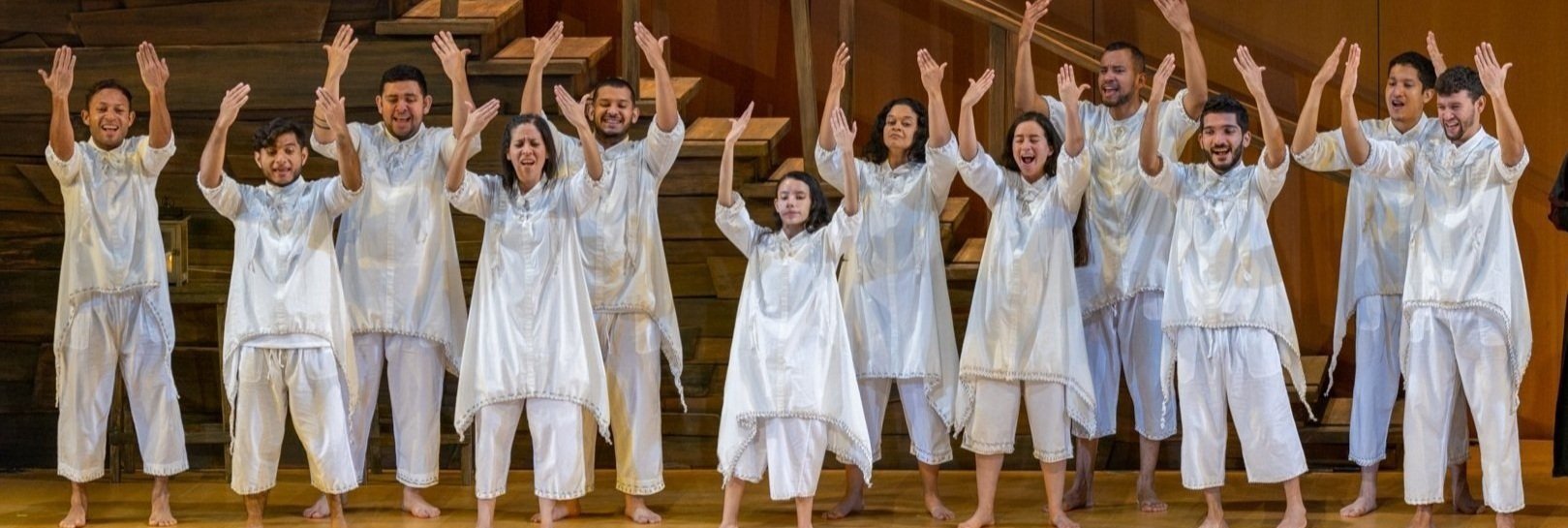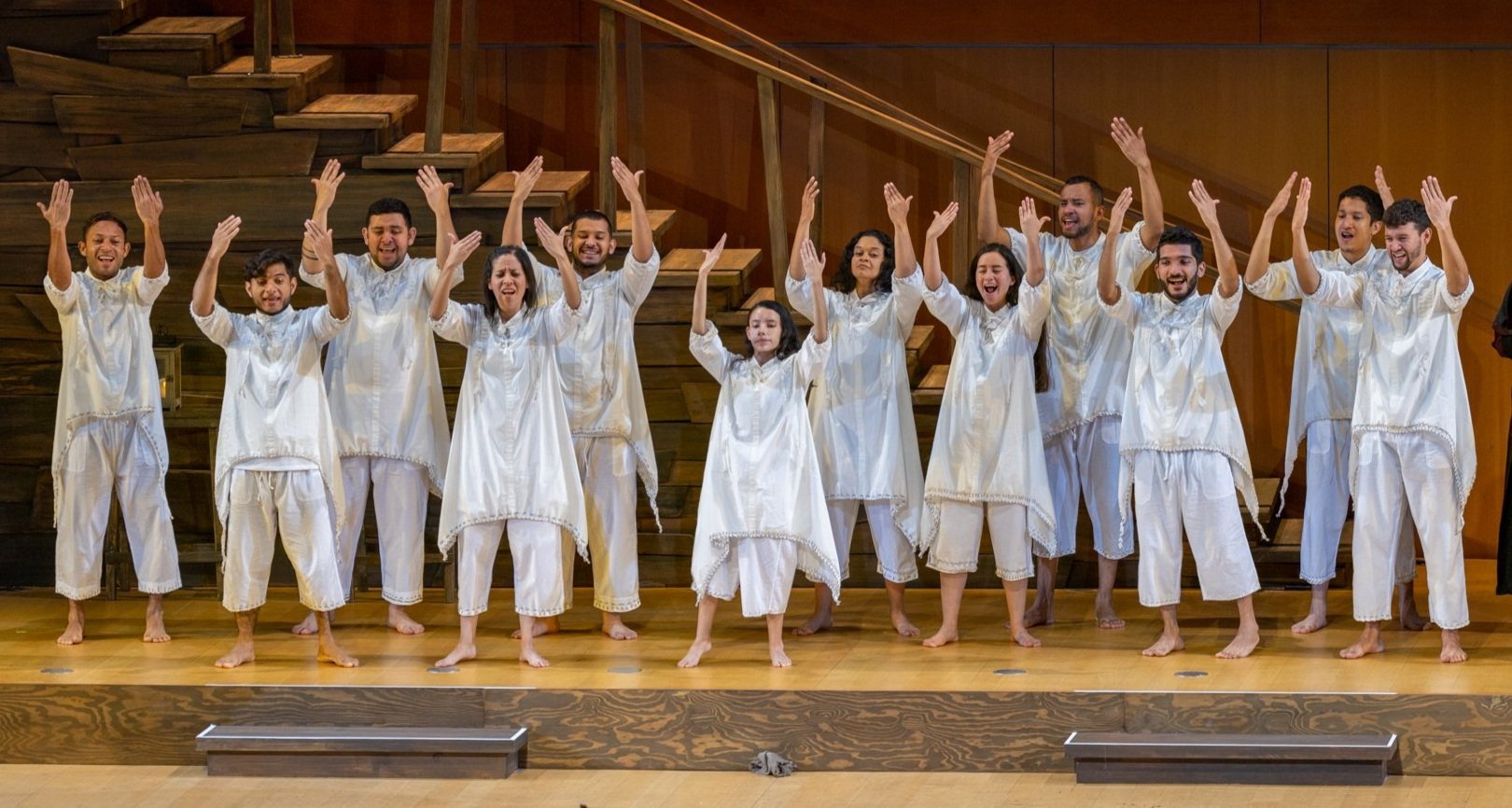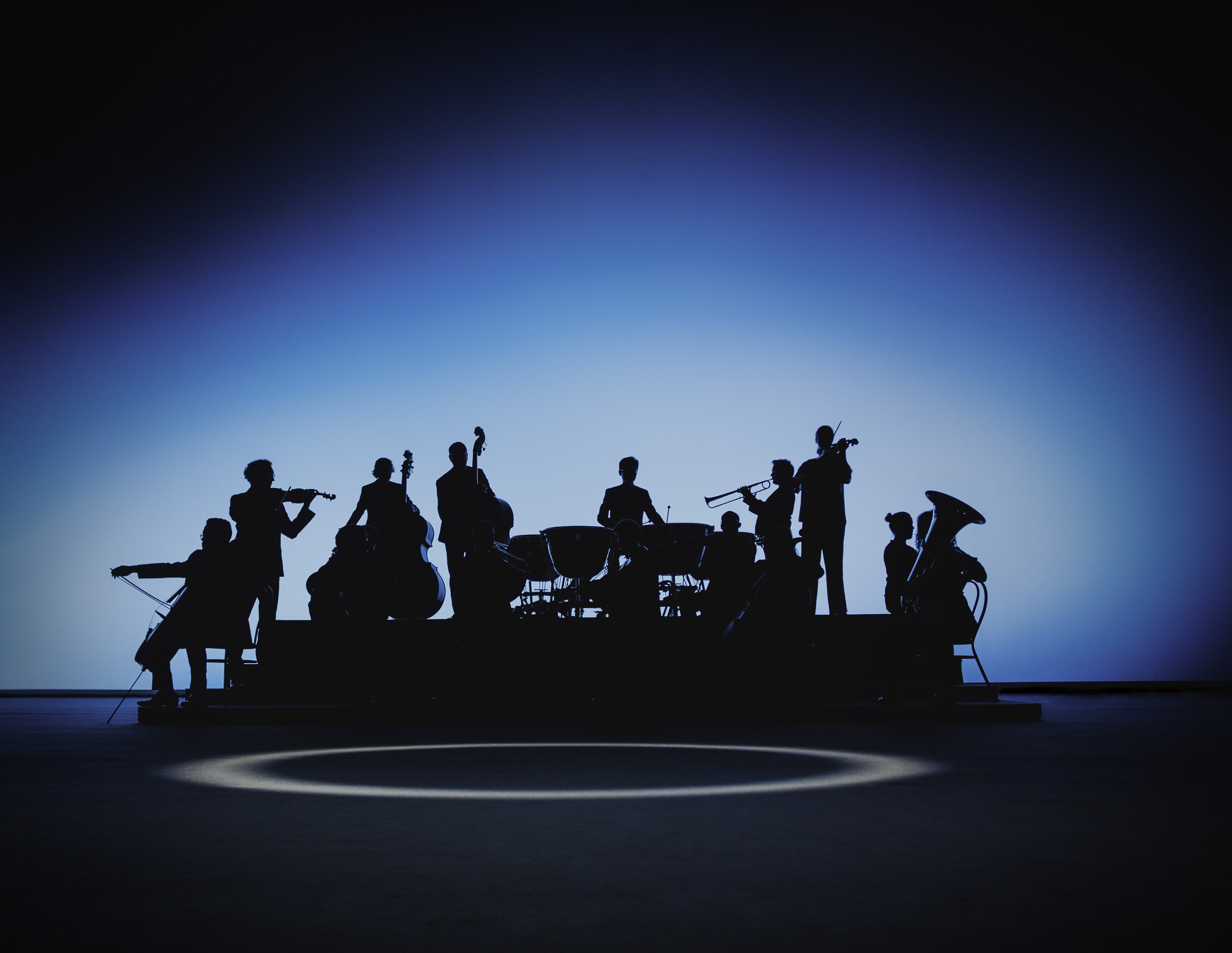
Fidelio & the Coro de Manos Blancas
Coro de Manos Blancas
The Coro de Manos Blancas (English: White Hands Choir) is a world-renowned performing arts ensemble of the National System of Orchestras and Youth and Children's Choirs of Venezuela (El Sistema). The ensemble was formed in 1995 with the goal of providing children, youth, and adults with disabilities with artistic opportunities, utilizing music as a tool for social development and inclusion.
The Coro de Manos Blancas is made up of over 100 members who form two sections: the Vocal section, directed by professor Luis Chinchilla, made up of children and young adults with visual and cognitive deficits, motor impairments, learning difficulties, autism, as well as invisible disabilities; and the Venezuelan Sign Language (LSV) section, directed by María Inmaculada Velásquez, made up of Deaf and hard-of-hearing musicians. In performance, musical works are joined into a single voice, through singing and sign language, generating new paradigms for the creative arts in society and arts education for people with disabilities.
The White Hands Choir has received support and recognition from renowned conductors, musicians, and singers including Sir Simon Rattle, Claudio Abbado, Gustavo Dudamel, Itzhak Perlman, Shoji Sato, Plácido Domingo, Michael Landerburger, Mark Churchill, Patricio Aizaga, Gerald Wirth, Mirella Freni, and Marcus Marshall.
Due to its groundbreaking work, the Coro de Manos Blancas has performed internationally in the United States, Switzerland, France, Italy, Spain, Austria, and Japan. In 2005, the Choir was named Cultural Heritage of Venezuela. In 2010, the city of Friuli, Italy awarded the group the Nonino Risit d 'Aur Award “for symbolizing a miracle for children and young people with disabilities”. The Choir has been invited to participate in Artistic Residencies at the Salzburg Festival, in the summer of 2013, and Milan, in 2015. In 2017, the Choir went on tour to Japan, which led to the creation of the Tokyo White Hands Chorus by Erika Colon and El Sistema Japan, and to Vienna, Austria in 2018.
In April 2022, members of the LSV section participated in a critically-acclaimed world premiere production of Beethoven’s Fidelio, in collaboration with the Los Angeles Philharmonic and Deaf West Theatre. They performed again in the Fidelio revival in May and June 2024 in Los Angeles, Barcelona, Paris, and London.
In July 2024, members of the Coro de Manos Blancas were featured in Coldplay’s music video feelslikeimfallinginlove.
Beethoven’s Fidelio
Members of the El Sistema’s White Hands Choir (Coro de Manos Blancas) in Fidelio, Walt Disney Concert Hall, 2022.
Sizzle Reel: Beethoven's "Fidelio" at Walt Disney Concert Hall
The expressive power of sign language and the search for human expression
In April 2022, the Dudamel Foundation supported the Coro de Manos Blancas on their journey to Los Angeles, CA to join Gustavo, the Los Angeles Philharmonic, and the Tony Award®-winning Deaf West Theatre at Walt Disney Concert Hall for the world premiere of this new Fidelio, created for both Deaf and hearing audiences.
Told through the composer’s music sung by hearing vocalists and acted through the expressive gestural poetry of sign language by deaf actors, the performances explore the search for communication—both primal and sublime—that is at the heart of all artistic expression.
The Coro performed in the cast of the revival in May 2024 in Los Angeles, and on tour to Barcelona, Paris, and London.
International Concert Tour 2024: Schedule & Tickets
This groundbreaking production of Beethoven’s Fidelio with Dudamel, LA Philharmonic, Deaf West Theatre, and Coro de Manos Blancas will go on an international tour in 2024. View the schedule and purchase tickets below.
16–17 May 2024 – Walt Disney Concert Hall, Los Angeles, CA >> TICKETS & INFO
26–27 May 2024 – Gran Teatre del Liceu, Barcelona, Spain >> TICKETS & INFO
31 May 2024 – Philharmonie de Paris, Paris, France >> TICKETS & INFO
3 June 2024 – The Barbican Centre, London, UK >> TICKETS & INFO
More about the project
Throughout his musical upbringing in Venezuela, Gustavo Dudamel rehearsed and led the Coro de Manos Blancas in various programs through El Sistema, notably conducting their first-ever symphonic concert at age 18. In 2020, he envisioned a new production of Beethoven’s only opera Fidelio, to mark the composer’s 250th anniversary of his birth, which explores his identity as a deaf artist.
Beethoven, one of history's most popular and influential composers was, for over half of his life, hard-of-hearing and completely deaf. In fact, when he conducted the premiere of Fidelio in its final form in 1814, Beethoven withdrew from public life because of it. When Gustavo visited the Beethovenhaus in Bonn, Germany and fully immersed himself in the composer’s life, it was clear to him that what was perceived by some as a limitation, in reality, was actually reinforcing and furthering the composer’s creativity.
Gustavo began developing this innovative approach to Fidelio with director Alberto Arvelo, which places the Deaf artists at the opera’s narrative core, a story itself which speaks to limitations of personal freedom and the fight to overcome obstacles. Through the support of the Dudamel Foundation, the Coro de Manos Blancas prepared to perform Fidelio in a tour throughout Europe with the Mahler Chamber Orchestra in April 2020. Unfortunately due to the COVID-19 pandemic, the production was forced to a halt.
Ludwig van Beethoven, 1804-05. Joseph Willibrord Mähler (10 June 1778 – 20 June 1860).
Excerpt from an essay by Gustavo Dudamel published in Ways of Hearing: Reflections on Music in 26 Pieces, (Princeton University Press, 2021).
Fidelio’s Echo
“In Beethoven's immense oeuvre, there is no work more expressive of the overcoming of adversity than his only opera, Fidelio. The transcendent, transformative power of human expression is fundamental to my understanding of art, and Fidelio is the most vivid, compelling dramatization of that principle.Not only in its musical language but thematically and symbolically, the composer dramatizes aspects of his personal condition, connecting those struggles to universal themes.
“I cannot think of Beethoven in general, and of Fidelio in particular, without thinking about the spiritual father of my country, Simón Bolívar. Beethoven and Bolívar were two courageous, passionate visionaries, direct contemporaries whose parallel lives straddled the transition from the Enlightenment to the revolutionary Romantic era, who came of age in the shadow of Napoleon and went on to dominate the cultural consciousness of their time. The message of liberty and struggle for freedom presented by Beethoven with such ferocious beauty resonates with the story of Bolívar, who faced colonial armies, survived political intrigues, and suffered personal tragedy, yet ultimately set millions of South Americans on the path to freedom.”









